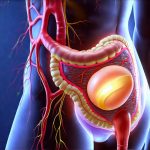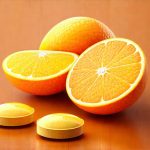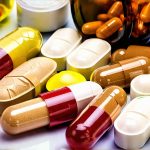Constipation is often viewed as a consequence of insufficient fiber intake, leading many individuals to proactively increase their consumption through dietary changes and supplements. However, a less commonly discussed phenomenon is constipation arising from an overabundance of fiber, particularly when introduced rapidly via supplementation. While fiber is undeniably crucial for digestive health, the body needs time to adapt to increased quantities, and exceeding its capacity can paradoxically lead to blockage and discomfort. This article will delve into the complexities of fiber-induced constipation, exploring its causes, symptoms, preventative measures, and strategies for gentle resolution when it occurs. Understanding this nuance is vital for anyone seeking to optimize their digestive wellbeing through fiber management.
The misconception that “more fiber is always better” stems from a valid concern: many modern diets lack adequate fiber. Yet, the digestive system isn’t a simple linear process. Fiber’s role extends beyond merely adding bulk; it impacts gut motility, fermentation processes, and water absorption. When fiber intake dramatically increases – especially through supplements like psyllium husk, methylcellulose, or wheat dextrin – without corresponding hydration or gradual introduction, these delicate balances can be disrupted. This disruption doesn’t invalidate the benefits of fiber overall but highlights the importance of mindful consumption and individualized adjustments. Ignoring this potential pitfall can result in frustrating constipation that feels remarkably similar to the very problem people are attempting to solve with increased fiber intake.
The Paradoxical Nature of Fiber-Induced Constipation
The core issue lies in the type and quantity of fiber, as well as individual gut health. Different types of fiber behave differently in the digestive tract. Insoluble fiber adds bulk and speeds up transit time, while soluble fiber absorbs water and forms a gel-like substance. A sudden surge of insoluble fiber can overwhelm the colon’s ability to process it efficiently, leading to blockage. Soluble fiber, while generally gentler, still requires adequate hydration; without enough water, it can actually increase stool hardness and contribute to impaction. Moreover, individuals with pre-existing conditions like Irritable Bowel Syndrome (IBS) or a history of constipation may be more susceptible to this effect.
Supplementing with high doses of fiber often bypasses the natural slowing-down mechanisms that accompany fiber intake from whole foods. When you eat an apple, for instance, you’re also consuming water, vitamins, and minerals which support digestion. Supplements concentrate the fiber without these accompanying nutrients. This concentrated dose demands a more robust digestive response than the body may be prepared for, especially if it’s not accustomed to high-fiber levels. It is therefore crucial to understand that supplementation isn’t simply about adding numbers; it’s about integrating fiber into an overall healthy dietary pattern. Signs from test results that call for diet overhaul can help identify areas to focus on in addition to fiber intake.
The gut microbiome also plays a significant role. Fiber acts as food for beneficial gut bacteria, promoting fermentation. While this process is generally positive, excessive fermentation due to too much fiber can produce gas and bloating, further contributing to discomfort and potentially slowing down motility. This creates a vicious cycle where the initial intention of improving digestion results in increased digestive distress. A gradual increase in fiber intake allows the microbiome to adapt and flourish without causing undue stress on the system. Understanding your gut health is key; signs from testing that show gut lining damage can provide valuable insight.
Understanding Fiber Types & Their Impact
Fiber is broadly categorized into soluble and insoluble types, each with distinct properties and effects on the digestive system:
- Soluble Fiber: Dissolves in water to form a gel-like substance. Sources include oats, beans, apples, and citrus fruits. It helps lower cholesterol and blood sugar levels and promotes regularity by softening stool. However, without sufficient water intake, it can paradoxically worsen constipation.
- Insoluble Fiber: Doesn’t dissolve in water and adds bulk to the stool, speeding up its passage through the digestive tract. Sources include whole wheat bread, vegetables, and bran. While generally helpful for preventing constipation, a rapid increase can overwhelm the colon.
The ideal approach isn’t necessarily about prioritizing one over the other but achieving a balance between both types. The ratio should be adjusted based on individual needs and tolerance levels. Focusing on obtaining fiber from whole food sources often provides a more balanced intake of soluble and insoluble fibers, along with essential nutrients that support digestion. Key takeaways from tracking digestive data over time can help you personalize your fiber approach.
Hydration: The Often-Overlooked Component
Adequate hydration is paramount when increasing fiber intake, whether through diet or supplementation. Fiber absorbs water to soften stool and facilitate its passage through the intestines. Without sufficient fluids, the fiber can actually draw water from the body, leading to dehydration and harder stools – exacerbating constipation. The recommended daily water intake varies based on activity level, climate, and individual needs, but generally falls around 8 glasses (64 ounces) per day.
Here’s a simple guideline:
1. Increase your water intake proportionally with fiber consumption. If you increase your fiber intake by 10 grams, aim to drink an extra glass of water.
2. Pay attention to the color of your urine—pale yellow indicates adequate hydration, while dark yellow suggests dehydration.
3. Consider incorporating hydrating foods into your diet, such as cucumbers, watermelon, and soups.
Recognizing & Addressing Symptoms
The symptoms of fiber-induced constipation can closely mimic those of other forms of constipation, making diagnosis challenging:
- Bloating and gas
- Abdominal cramping
- Difficulty passing stool or infrequent bowel movements
- A sensation of fullness or blockage
- Paradoxically harder stools despite increased fiber intake.
If you suspect that your constipation is related to excessive fiber supplementation, the first step is to reduce the dosage gradually. Do not abruptly stop taking supplements, as this can further disrupt digestive function. Simultaneously increase your water intake and incorporate gentle physical activity into your routine—walking or yoga can help stimulate bowel movement. If symptoms persist for more than a few days, consult with a healthcare professional to rule out other potential causes and receive personalized guidance. Self-treating constipation without understanding the underlying cause is never advisable. Recognizing the Signs of Liver Toxicity from Supplements is also important if you’re experiencing digestive issues alongside supplementation.
The key takeaway is that fiber is a powerful tool for digestive health but must be approached thoughtfully and individually. It’s not about blindly increasing intake; it’s about finding the right balance, staying hydrated, listening to your body, and seeking guidance when needed. Supplements That Protect Pancreas from Oxidative Damage might be helpful in supporting overall digestive health, but should always be discussed with a doctor first. Consider a high-fiber diet for constipation relief as part of your plan. And don’t forget to look at top early signs from stool tests that need follow-up for a more comprehensive understanding of your gut health.


















